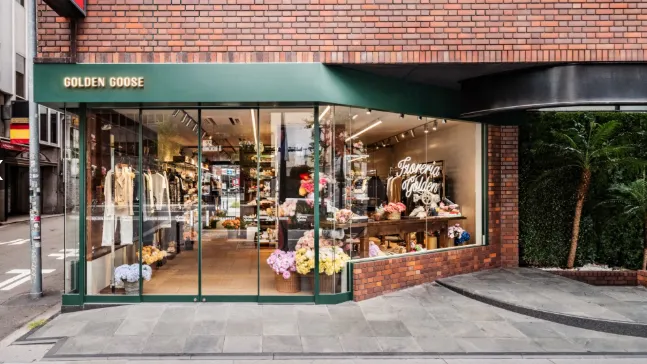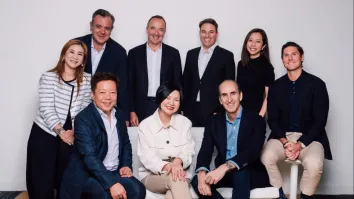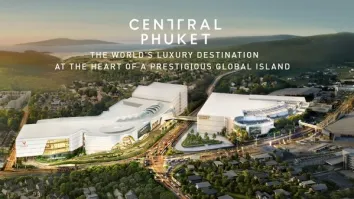Top reasons to embrace shops that pop
With the explosion of pop-up retail spaces and events, it certainly seems like this temporary format, sometimes referred to as flash retailing, is now a permanent element of the retail industry. Muneerah Bee finds out more from Adrian Chan, co-founder of retail space rental agency PopUp Angels.
What is the appeal of visiting a pop-up retail store?
Adrian Chan: Pop-up stores are most appealing when they deliver an experience that consumers cannot get elsewhere. It is common nowadays to see the same stores and brands across shopping malls wherever you go. Consumers are therefore drawn to stores that offer products and experiences that are different from the usual chain stores.

Bricks-and-mortar retailers are opening experiential or new concepts that are different from their permanent retail stores such as Chanel’s arcade-themed beauty pop-up shop.
Some instances of pop-up retail include e-commerce retailers opening pop-up showrooms, allowing customers to see and test products for themselves.
On the other hand, bricks-and-mortar retailers are opening experiential or new concepts that are different from their permanent retail stores. An example is Chanel’s arcade-themed beauty pop-up shop.
What are some of the key elements for a successful pop-up?
Chan: Firstly, the location must match the target market and the pop-up has to deliver an experience or products that consumers cannot get in existing retail stores. It is also important to work on the marketing of the pop-up to build awareness before the event. A successful pop-up is also focused on the objective it wants to achieve — be it brand awareness, market testing, consumer education, user acquisition, or simply product sales.
Are pop-up retail events only relevant for the holiday season? How can pop-up retail deliver long-term value?

Pop-ups are relevant year-round and do not have to be confined to the holiday season. They can often deliver value long after the pop-up has ended.
Chan: There are many benefits of pop-ups aside from holiday season retail. Therefore, pop-ups are relevant year-round and do not have to be confined to the holiday season. They can often deliver value long after the pop-up has ended.
One clear advantage is that pop-ups allow brands to reach new customer segments. For example, physical showrooms allow online retailers to reach customers that need to touch and feel a product before purchase. This segment of customers would be hard to reach with a purely online presence. Once they have experienced the product in person, such customers are more likely to purchase online even when the pop-up has ended.

Pop-ups allow brands to launch fast and test their products that they may be unable to do in their permanent stores.
Additionally, pop-ups allow brands to launch fast and test their products. The insights and feedback gained from real-life customers can be invaluable in informing and shaping the retailer’s longer term strategy.
Lastly, retailers can experiment with concepts that they may be unable to do in their permanent stores. They also allow retailers to create a unique brand experience and reach out to their customers in a different way. This way, retailers can build awareness, brand loyalty and positive associations that last beyond the life of the pop-up.
Can you share more about PopUp Angels’ role in the retail industry?
Chan: PopUp Angels arose from our own frustrations with trying to start a pop-up store. Prior to starting PopUp Angels, my co-founder Kit and I ran various retail businesses for about five years. During this time, we always wanted to start pop-up stores to promote our businesses but found the whole process of finding short-term space, dealing with landlords, and setting up space was really cumbersome. We felt there had to be a better way.
At the same time, the retail industry was changing and retail landlords were seeing more vacancies. Therefore, we felt that a platform such as PopUp Angels would be beneficial to both the landlords as well as retailers. We wanted to create a platform that would make it easy for retailers to start pop-up stores.
PopUp Angels makes it easy for brands to rent pop-up spaces by providing renters with two things:
- A platform that allows them to find pop-up spaces easily; and
- Customer support that is able to walk them through the whole process of renting and setting up a pop-up store.
By making it easier to rent pop-up spaces, we hope that more retailers will be able to utilise pop-up stores to grow their businesses.
For landlords, pop-up stores can help fill their vacant spaces while they search for long-term tenants. For malls, pop-ups can help refresh their spaces as well as attract new segments of shoppers to their malls.
How will pop-up stores and events impact traditional bricks-and-mortar stores in future?

With pop-up concepts, retailers can experiment with concepts that they may be unable to do in their permanent stores.
Chan: Physical stores still have a big part to play in retail and will not be going away any time soon. Nevertheless, the challenging retail climate has led to traditional bricks-and-mortar retailers scaling back on their permanent stores. Some of the slack will be taken up by pop-up stores and events.
Omni-channel retail will continue to grow in importance. Pop-up stores will thus serve as an important customer touchpoint, be it for traditional bricks-and-mortar or e-commerce retailers.



















 Advertise
Advertise






